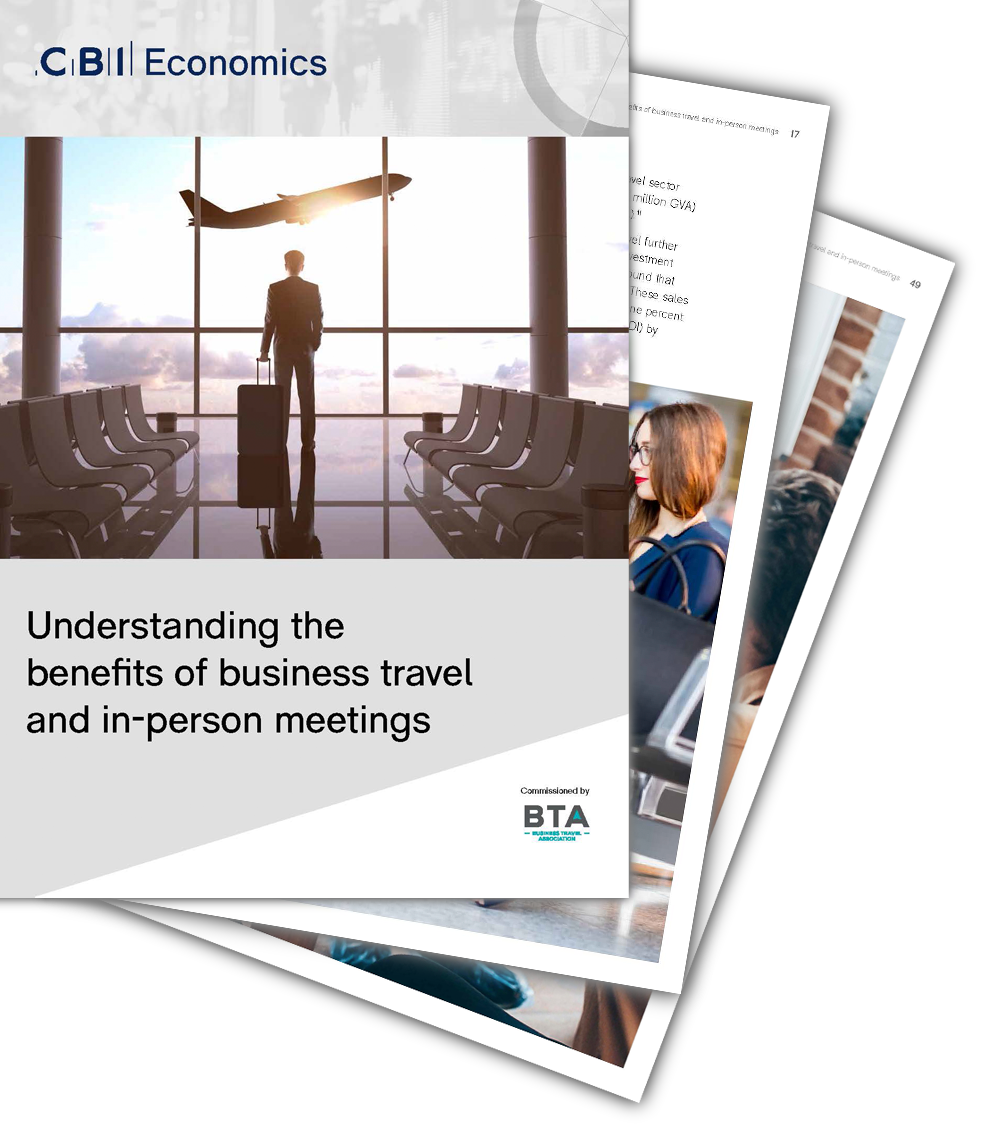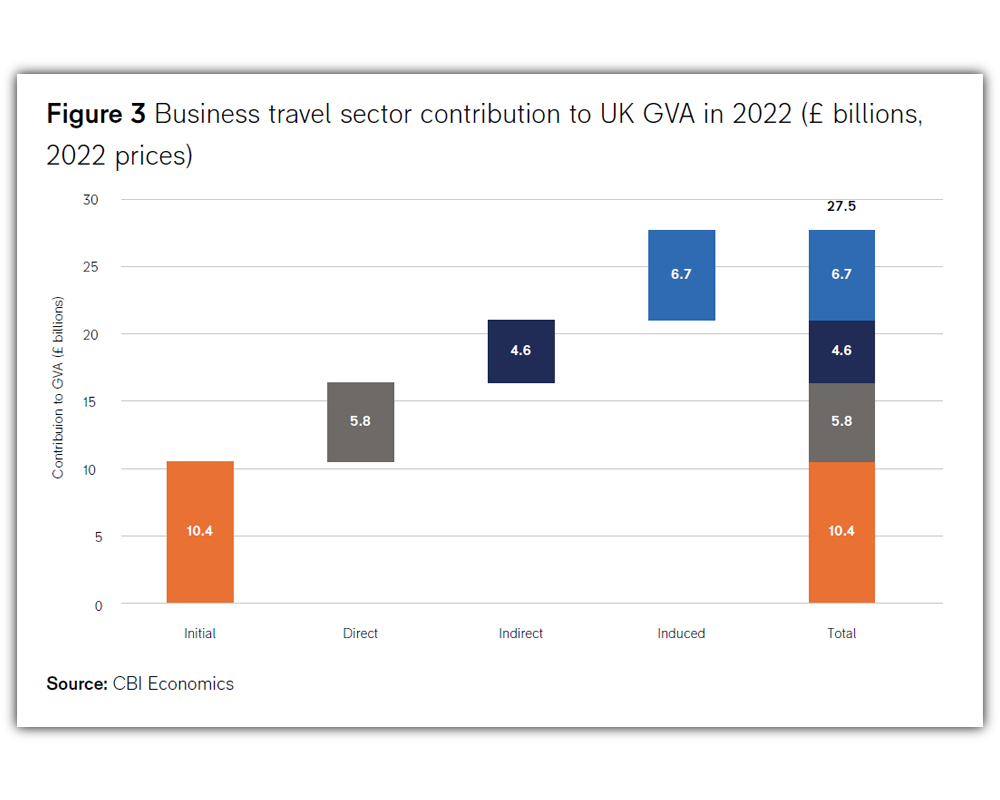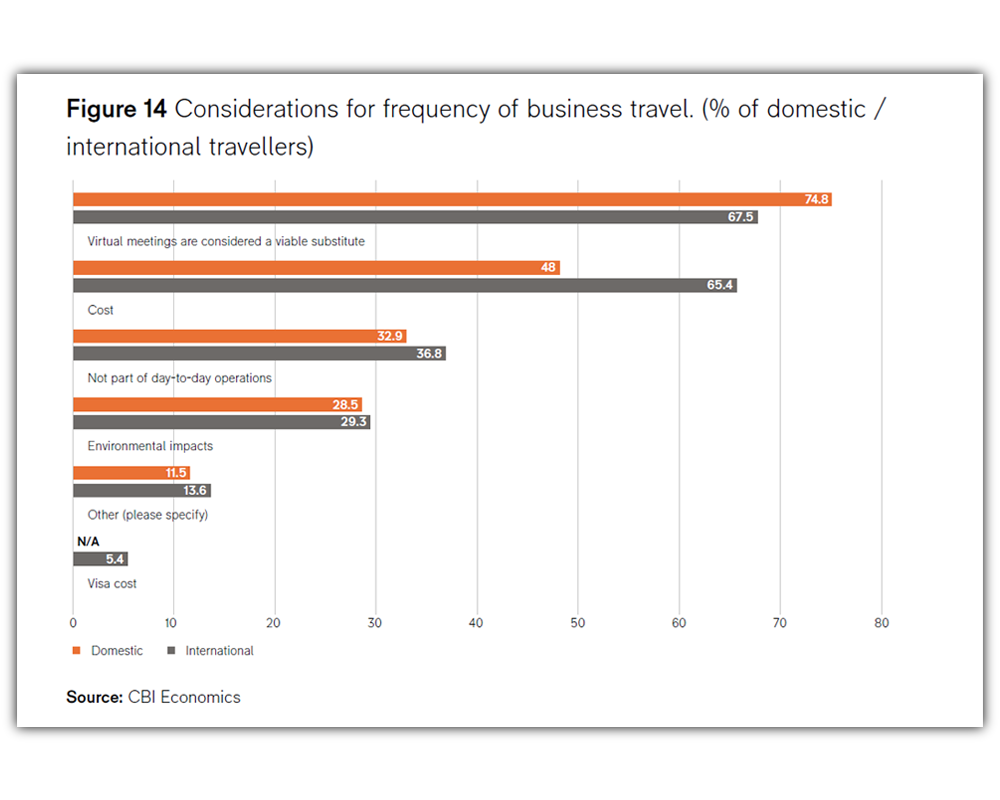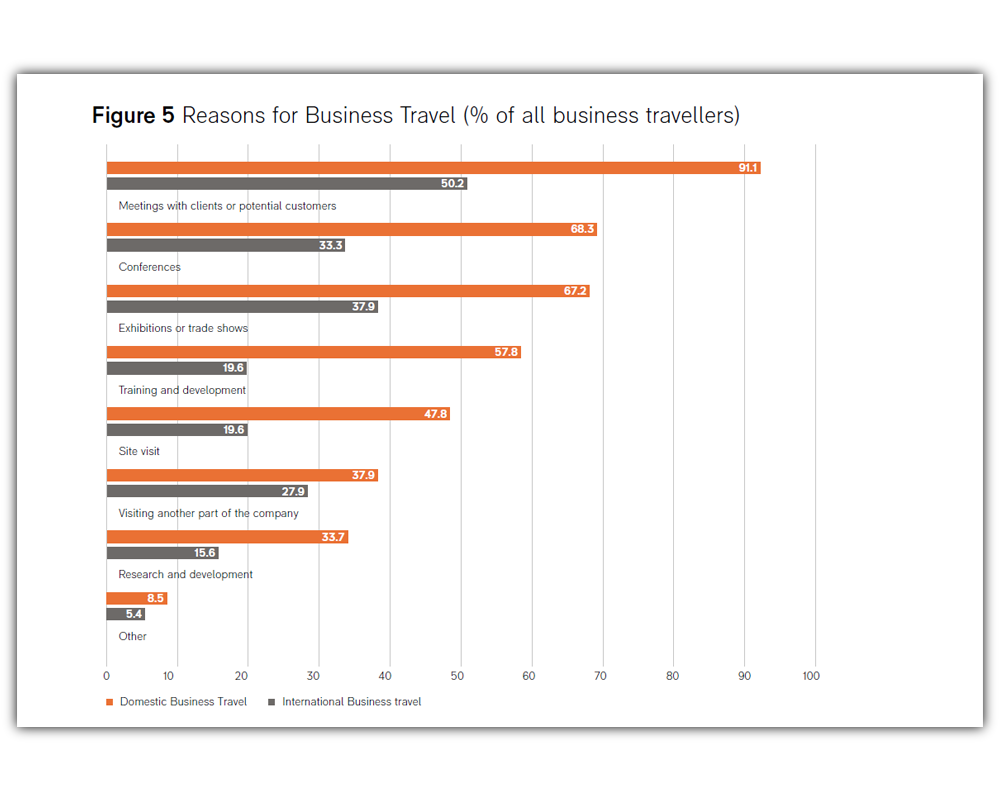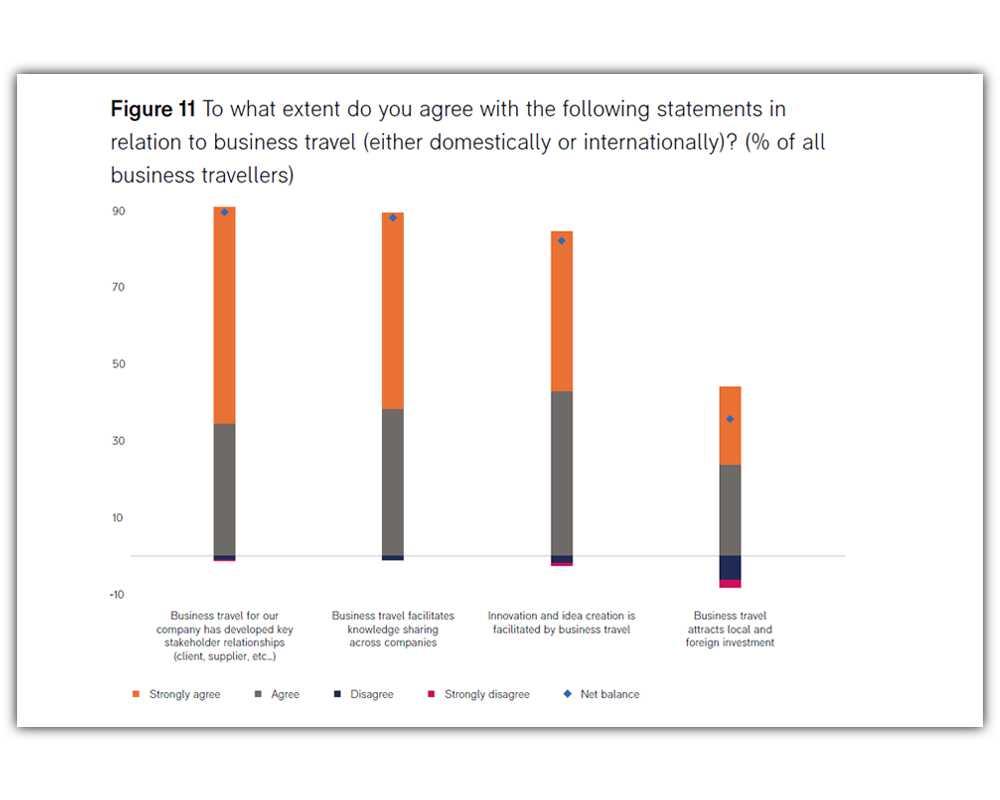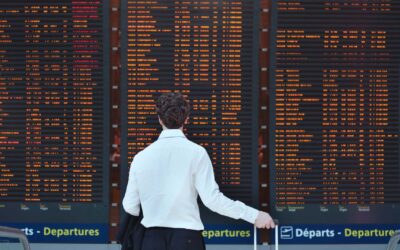The Big Business Travel Report
Understanding the economic benefits of business travel and in-person meetings in light of the CBI Economics reportWhat is the value of business travel and in-person meetings in a post-pandemic, hybrid working world?
The outbreak of COVID-19 changed the global business landscape for good. Not only were companies forced to adapt to a new market where both domestic and international travel stood still, many decided to adopt a hybrid working model to keep day-to-day operations ticking over.
But how was business travel impacted in this new working world?
To answer his question and fill the evidence gap, the Business Travel Association (BTA) commissioned CBI Economics to explore the economic benefits of travelling for work for both businesses and the UK economy. The resulting publication, entitled ‘Understanding the benefits of business travel and in-person meetings’, unearthed a number of eye-opening discoveries.
Here we present our summary of the report and highlight the key statistics and findings that shine a light on the current business travel trends. Read on to find out more.
The 4 Key Findings
[click on a graph to enlarge it]
Business travel contributed £10.4 billion in GVA and 79,900 Full Time Equivalent (FTE) jobs to the UK economy.
It was found that business travel is a key contributor to the UK economy. The £10.4 billion in Gross Value Added (GVA) it provided from direct activities represents 0.5% of the UK GVA and is roughly the same size as the sports and recreation activities sector. The business travel sector also saw labour productivity of £130,200 per job,
which is above double the UK average of £60,200 in 2020.
Did you know?
Another study found labour productivity to be higher in air transport services than the UK average.
While businesses agreed that virtual meetings are a viable substitute, they do not replace the need for in-person meetings.
In-person client meetings were preferred to virtual equivalents, with 79% of businesses favouring face-to-face appointments. This preference was also evident when respondents were asked about recruitment meetings. Over two-thirds of companies in the study said that in-person interviews allowed them to build relationships with potential colleagues quicker.
Did you know?
Academic literature shows in-person meetings facilitate efficient communication through visual language cues.
The most common reason for travel was meeting with clients or potential clients.
Meetings with clients or potential customers was the most common reason for business travel, with a huge 91% of respondents citing this as one of the main drivers for domestic trips. This statistic is supported by a BTA survey of business travel specialists, where 51% found face-to-face interaction as the number one success factor in winning new clients.
Did you know?
Most respondents preferred to travel domestically rather than internationally, with an increase in frequency over the last year.
Firms strongly believe travel is key to building essential business relationships.
It was found that companies who participated in business travel overwhelmingly agreed that the return of investment from travelling outweighed the financial cost of making the trips. Most companies strongly agreed that business travel facilitates knowledge sharing, idea creation, and innovation, with 70% of executives finding business travel important to increasing profits and sales.
Did you know?
A US study found that for every $1 spent on business travel arrangements, $12.50 is estimated to be recuperated.
Additional Findings
The report uncovered a number of other statistics which offer a unique perspective on the post-pandemic business travel landscape. Here are a few of the most illuminating insights…
%
Nearly three-quarters of all business travel within London takes place on public transport.
%
8 of every 10 domestic business travellers outside of London use private cars.
%
Just over a third of firms believe that business travel attracts local and foreign investment.
%
7 in 10 firms agreed that domestic business travel was an important part of their day-to-day.
TAKE THE FINAL STEP
TO BETTER TRAVEL
Gray Dawes Consulting is an impartial, in-house team of experienced travel data experts who combine 90 years of experience, market-leading tools and analytical thinking to drive corporate travel booking efficiencies, cost savings and traveller satisfaction.
Our approach is to fully understand a client’s organisation; its culture, employees and business objectives, which helps us make informed, realistic, achievable and measurable recommendations about enhancing your travel programme.
We typically deliver up to 22% in savings by looking at 28 KPI levers surrounding costs. So, if driving value is your goal then our holistic approach is designed to assess and measure efficiencies at every step of the booking process.
We make sure we have every eventuality covered to ensure your travel programme operates more efficiently through change.
In Summary
The findings of the report are essential for those in the business travel industry. Not only do they paint a clearer picture of the post-pandemic travel landscape, they provide companies with plenty of food for thought about their future in a hybrid-working world.
Yet while countless learnings can be drawn from the wealth of information contained within the pages, the main messages remain clear:
- Most businesses, whether big or small, have travelled for work in the past year.
- Virtual meetings, while viable, do not replace the need for in-person meetings.
- The business travel industry plays a key, beneficial role in the UK economy.
No matter what lessons one might take from the report, there is no denying its importance – especially in the way it fills the evidence gap between work and business travel in the wake of COVID-19. How this new evidence might be used to guide the future of the industry will be fascinating to see.
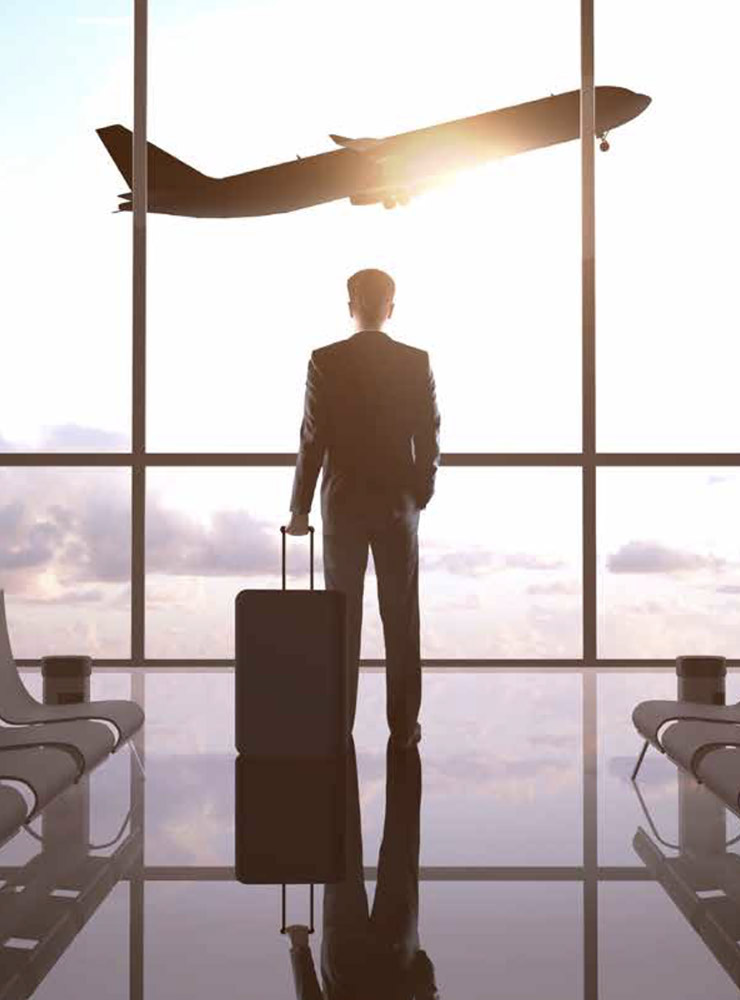
Related Articles
What is the True Value of a TMC?
A recent article from The Business Travel Magazine claims that Travel Management Companies (TMCs) like Gray Dawes are struggling to provide value for their clients. However, at Gray Dawes, we respectfully and heartily disagree… After all, not all TMCs are created equally. Tarring everyone with the same brush only serves to devalue the brilliant work and innovative thinking that organisations such as ours bring to the industry. In this article, we take a deeper look at the “Value Proposition” piece from the Business Travel Magazine and demonstrate how we are genuinely doing things differently.
How the Paris Olympics 2024 will Impact Business Travel (And What You Can Do About It)
The Olympic Games are heading to Paris in July. Over 10,000 athletes will be throwing, swimming, running, cycling, and more for the chance to grab a gold medal and write themselves into the annals of Olympic history. But with an estimated 15 million visitors planning to head to the event according to the Paris je t’aime tourist office, travelling to and within Europe for work will almost certainly be affected. In this article, we take a look at how the Paris Olympics 2024 might impact business travel and offer our expert tips and advice to help you keep your trip on course.
ITA Airways Insider
ITA Airways aim to create an efficient and innovative service that places its customers at the centre of everything it does. Their pledge to provide a personal, best-in-class experience through digital innovations, combined with their commitment to sustainability – including the use of new, greener aircraft -underpins their sky-high mission for 2024 and beyond. Plus, with new equality and inclusion strategies in place to foster gender-neutral workplaces, it’s an exciting time to be a part of the ITA Airways team.
